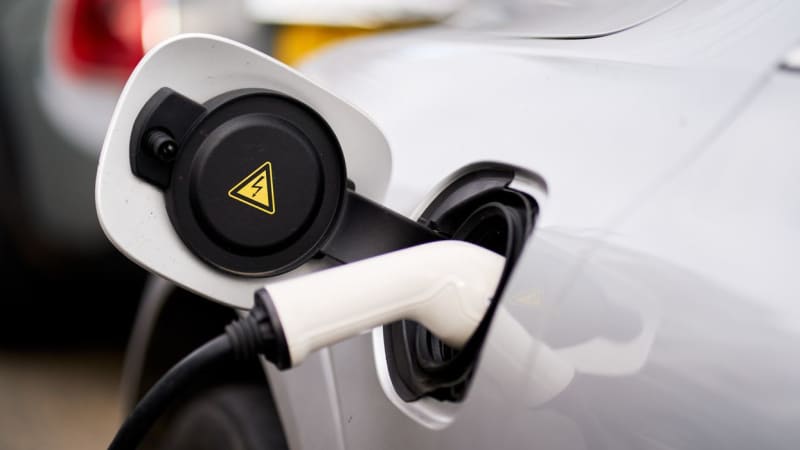
DRIVING LAW CHANGES MAY LEAD TO 'MANY HURDLES' AS 2030 PETROL AND DIESEL BAN 'SHOULD BE FOR CARS ONLY'
Experts have called for the Government to make massive changes when deciding the future of the 2035 deadline to ban the sale of new petrol and diesel cars and vans.
Former Prime Minister Rishi Sunak was in charge of moving the 2030 deadline to ban new petrol and diesel vehicles to 2035, saying that drivers should be given the chance to switch when they want, not when the Government tells them to.
Keir Starmer's Labour party said it would reinstate the original 2030 date to help drivers get behind the wheel of electric vehicles and provide assurances to major manufacturers.
Following his landslide election win, Starmer will be under pressure to make a decision quickly that will give further clarity to the whole automotive industry.
Do you have a story you'd like to share? Get in touch by emailing [email protected]
A Government spokesperson has told GB News that it will be going back to the original 2030 date to ban the sale of new vehicles with internal combustion engines "in due course".
However, there is no confirmation as to whether this will apply to vans and whether they will need to be zero emission by the end of the decade.
Some experts have called for the Government to remain with the 2035 deadline for strictly electric vans as it will give drivers a chance to wait for these vehicles to become cheaper and more accessible.
Lorna McAtear, the board member for the Association of Fleet Professionals (AFP), hinted that it would not be "practicable" to include vans in the move to only sell electric cars from the end of the decade.
She said: “There are too many hurdles and the products available do not meet the needs of enough businesses.
“There is an argument for leaving the current 2035 target in place for all vehicles, with the ZEV mandates continuing, but if there is a return to 2030, it should be for cars only,” Fleet News reported.
The Government still has a few grants available for drivers who are after small and large vans that are powered by electric powertrains.
Motorists can save £2,500 off the total price of a small van as long as it is less than 2,500kg gross weight, has CO2 emissions of less than 50/km and be able to travel at least 60 miles without any emissions.
Large vans attract a maximum discount of £5,000, with drivers able to get popular brands like Citroen, Fiat, Ford, Mercedes-Benz, Nissan, Peugeot, Renault, Toyota, Vauxhall and Volkswagen models.
Dunstan Power, director of electric vehicle charging design consultancy Versinetic, commented on the plans to reintroduce the original 2030 deadline and what that would mean for drivers.
The expert suggested that "some incentives" like Plug-In Car Grants and cheaper charging could be required to maintain the current pace of EV uptake.
Power said: “The backsliding to 2035 by the previous Government has been terrible for the EV infrastructure industry.
LATEST DEVELOPMENTS:
・Drivers face ludicrous 30-mile diversion for just 160 metres of road closures this weekend
・Seven in 10 drivers to be slapped with unfair £2,000 DVLA 'luxury' car tax costs next year
・Major new fuels backed by Ferrari boss as hydrogen 'could be a good option for the future'
"The EV industry as a whole loses out by delaying in bringing new models and technology to market whilst other nations march on.
"It’s right to restore the challenging goal to allow Britain to become one of the world leaders in this space, rather than playing catch-up."
2024-07-26T15:58:16Z dg43tfdfdgfd